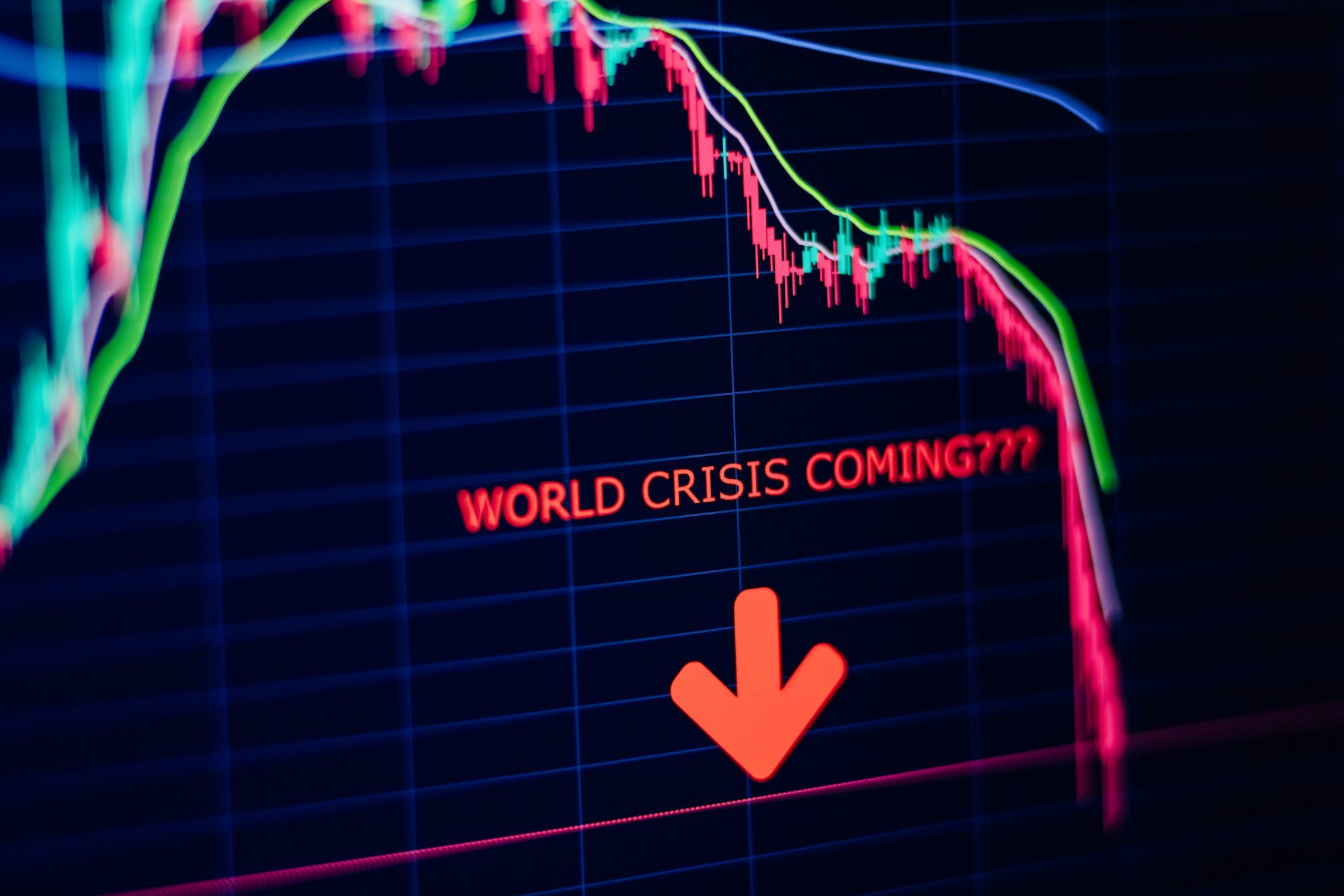QNB Report: The Looming Risks of Global “Stagflation”
بنك قطر الوطني: مخاطر “الركود التضخمي” تلوح في الأفق
QNA
Doha: Qatar National Bank (QNB) expected in its weekly report that the Covid-19 pandemic and the Russian-Ukrainian conflict may become catalysts to a long-term reversion of the features of the “Great Moderation,” producing a longer period of “stagflation.” This would endanger all the efforts of fiscal and monetary policy that were undertaken during the pandemic, prompting growth to reverse to pre-pandemic levels.
Over the last several decades, from 1990 to 2020, the global economy thrived under a macro regime that is often dubbed as the “Great Moderation,” i.e., a period in which advanced economies benefited from moderate growth and low inflation. The “Great Moderation” was fuelled by several secular or long-term trends, including digitization, globalization, just-in-time manufacturing and independent central banks, QNB said in the report.
Importantly, “stagflation” may not be only a temporary phenomenon associated with pandemic-related supply bottlenecks and geopolitical shocks. Two major changes suggest that global “stagnationary” forces may prevail for a longer period of time beyond the current cycle, the report indicated.
First, political relations among global super-powers are deteriorating rapidly, transforming the “geopolitical dividend” of global integration into a “geopolitical recession” of de-globalization, it said, adding that examples include the US-China strategic rivalry and the recent sanctions against Russia, following the invasion of Ukraine.
This contributes to reverse globalization and undermines just-in-time manufacturing, prompting an agenda of protectionism, supply-chain “onshoring,” food security and more closed border for migration flows. Moreover, it also makes the global economy more vulnerable to negative supply side shocks, such as the disruption in commodity markets triggered by the Russo-Ukrainian conflict. Hence, the “geopolitical recession” is negative for productivity, trade and investment flows, increasing production costs. This creates the conditions for lower growth and more elevated prices over the long-term, according to the report.
Second, the pandemic has again led to a significant increase in global debt, which was already at its all time highs, the reported noted, pointing out that debt levels in major economies are too high and this makes them too sensitive to a more meaningful cycle of rate hikes. In this sense, should high inflation continue for longer, the magnitude and pace of monetary policy normalization would be more contained in order to avoid credit tantrums and potential recessions. In other words, high debt levels are forcing major central banks to moderate their inflation mandate in the name of credit and employment stability, it added.
Despite the “hawkish” pivot from major central banks in recent months, there is limited monetary policy room for a more comprehensive fight against inflation, and over time, this will contribute to persitent inflationary pressures, the report underlined.
Inflation and GDP growth are the two most powerful drivers in a modern economy. Although indifferent ways, they both affect all major decisions about when or where to consume and invest, QNB said in the report.
An ideal macroeconomic environment would combine high growth with low inflation, i.e., a rapid expansion of activity alongside stable prices. However, this “sweet spot” between growth and inflation is difficult to achieve, due to a historical positive correlation between them over the long-term, the report said.
قنا
الدوحة: توقع بنك قطر الوطني /QNB/، في تقريره الأسبوعي، أن تؤدي جائحة /كوفيد-19/ والصراع الروسي الأوكراني إلى إلغاء المحفزات الناتجة عن “الاعتدال العظيم” على المدى الطويل، مما سينتج عنه فترة أطول من “الركود التضخمي”، وهذا من شأنه أن يقوض كافة المساعي المتعلقة بالسياسة المالية والنقدية والتي تم اتخاذها خلال الجائحة، وهو ما سيؤدي في نهاية المطاف إلى تراجع النمو إلى مستويات ما قبل الجائحة.
وأوضح التقرير الصادر عن البنك أن الفترة التي تراوحت بين عامي 1990 – 2020 شهدت ازدهار اقتصادي عالمي في ظل بيئة اقتصاد كلي يشار إليها عادة بفترة “الاعتدال العظيم”، وهي الفترة التي استفادت فيها الاقتصادات المتقدمة من اعتدال النمو وانخفاض التضخم.
وأضاف أن هذه الفترة مدفوعة بالعديد من الاتجاهات العامة أو طويلة المدى، بما في ذلك الرقمنة والعولمة والتصنيع في الوقت المناسب، واستقلالية البنوك المركزية.
ولفت إلى أن “الركود التضخمي” قد لا يكون مجرد ظاهرة مؤقتة مرتبطة باختناقات العرض الناتجة عن الجائحة والصدمات الجيوسياسية، فهناك تغييران رئيسيان يشيران إلى أن عوامل “الركود” العالمي قد تستمر لفترة أطول تتجاوز الدورة الحالية.
وأشار إلى أن أولى هذه التغيرات تدهور العلاقات السياسية بين القوى العالمية العظمى، مما يحول “المكاسب الجيوسياسية” السابقة الناتجة عن التكامل العالمي إلى “ركود جيوسياسي” وذلك بسبب زوال التأثير الإيجابي للعولمة.
ومن الأمثلة التي أشار إليها التقرير في هذا السياق، التنافس الاستراتيجي بين الولايات المتحدة والصين، والعقوبات الأخيرة ضد روسيا في أعقاب غزوها لأوكرانيا.
وقال التقرير :”سيساهم هذا التنافس في إزالة التأثير الإيجابي للعولمة وسيقوض التصنيع في الوقت المناسب، مما يؤدي إلى بروز الأجندة التي تنطوي على الحمائية، وسلاسل توريد “ذات الطابع المحلي”، والأمن الغذائي، وإغلاق الحدود أمام تدفقات الهجرة”.
علاوة على ذلك، فإن التنافس كما يشير التقرير سيجعل الاقتصاد العالمي أكثر عرضة للصدمات السلبية في جانب الإمداد، مثل الاضطراب في أسواق السلع الأساسية الذي أحدثه الصراع الروسي الأوكراني، ومن ثم، فإن “الركود الجيوسياسي” يؤثر سلبا على الإنتاجية وتدفقات التجارة والاستثمار، مما يؤدي إلى زيادة تكاليف الإنتاج. وهذا يوفر بيئة ملائمة لتراجع النمو وارتفاع الأسعار على المدى الطويل.
أما العنصر الثاني للمتغيرات الذي أورده التقرير، تمثل في أن الجائحة أدت مجددا إلى زيادة كبيرة في الدين العالمي، والذي بلغ بالفعل أعلى مستوياته على الإطلاق. “فمستويات الدين في الاقتصادات الكبرى مرتفعة للغاية، وهذا يجعلها أكثر عرضة للتأثر بدورة كبيرة من رفع أسعار الفائدة”.
ورأى التقرير أن استمرار ارتفاع التضخم لفترة أطول سيؤدي إلى الحد من حجم ووتيرة تطبيع السياسة النقدية لكبح نوبات الارتفاع الحاد في الائتمان والركود المحتمل. بعبارة أخرى، فإن مستويات الديون المرتفعة ترغم البنوك المركزية الكبرى على تقليص تدابيرها المتعلقة بإدارة التضخم لضمان استقرار الائتمان والتوظيف.
وأوضح أنه بالرغم من تلميحات “التشديد” من قبل البنوك المركزية الرئيسية في الأشهر الأخيرة، فهناك مجال محدود لاستخدام السياسة النقدية لمحاربة التضخم بشكل أفضل. وبمرور الوقت، فإن ذلك سيساهم في استمرار الضغوط التضخمية.
ولفت التقرير إلى أن التضخم ونمو الناتج المحلي الإجمالي هما المحركان الأقوى للنشاط في الاقتصاد الحديث. وعلى الرغم من اختلافهما، إلا أنهما يؤثران على جميع القرارات الرئيسية المتعلقة بأوقات وأماكن الاستهلاك والاستثمار.
وأوضح أن بيئة الاقتصاد الكلي المثالية تتطلب وجود مزيج من ارتفاع النمو وانخفاض التضخم، بمعنى حدوث تزايد في النشاط مصحوب باستقرار في الأسعار”. ولكن يصعب تحقيق هذا “الاتزان المثالي” بين النمو والتضخم، وذلك بسبب العلاقة الطردية التاريخية بينهما على المدى الطويل، حيث يؤدي ارتفاع النمو إلى التوظيف والاستغلال الكامل للإمكانات، مما يؤدي بدوره إلى ضغوط على الموارد والأسعار”.




